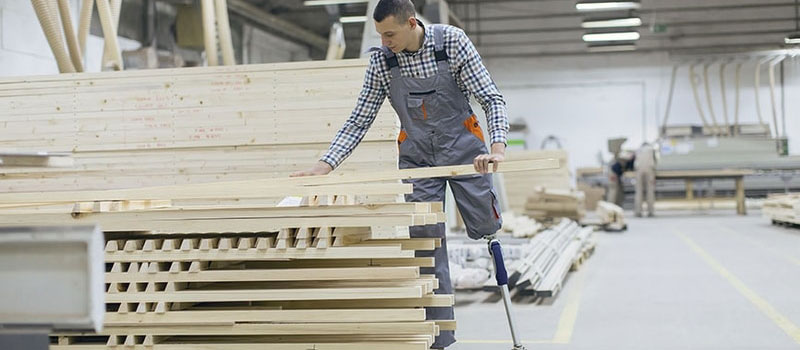What is disability inclusion in the workplace?

Disability inclusion allows everyone to have equal rights in society – including the workplace.
According to an article on Ben having a job or career is a standard part of life for many people, but there can be barriers in place that make it difficult for a person with disabilities to find and retain employment. Taking an inclusive stance can increase workplace opportunities.
What is inclusion?
In short, inclusion provides people with disabilities the same opportunities to participate in society as others. This goes beyond encouraging people – ideally, inclusion should be a key part of policies and practices in the workplace.
The disability employment gap
Encouragingly, the latest government research shows that the disability employment gap reduced between 2013 and 2019. It showed that 53.2% of disabled people were in employment, compared to 81.8% of non-disabled people.
However, there’s still progress to be made. The disability employment gap was greater for disabled men than disabled women. Interestingly, this is the opposite of the trend for non-disabled people, amongst whom men are more likely to be in work.
Supporting disabled employees
The good news is that the majority of employers are open to creating a more supportive environment for disabled candidates and employees.
Having policies and procedures in place to ensure inclusivity, even before you’ve employed anyone who has a disability, will benefit you and future candidates in the long-run, as you’ll have a better idea of how you can accommodate them. We’ll explore what you can do in the next chapter.
Creating a more inclusive work culture
It takes time and commitment to create a more inclusive workplace culture, but it’s worth it in order to ensure all employees are comfortable, confident, and happy at work.
It will also benefit your company in the long-run. Employee retention is likely to be higher if your team is happy and supported.
Identify existing unconscious bias
Unconscious bias refers to stereotypes or “prejudice in favour of or against one thing, person, or group compared with another” that someone can form outside of their own awareness.
We all have unconscious bias. Humans like to organise the world by placing everything into categories and this can lead to bias, even if it differs completely from your actual beliefs. However, if you become more aware of it, you can stop it from having an influence over your behaviour.
Supporting disabled employees
It’s not enough to broaden your recruitment strategy in order to attract disabled employees. You also need to provide support for them after they’ve been hired. Inclusion isn’t a box-ticking exercise.
Improve workplace design and accessibility
Some straightforward changes can make a considerable difference to the working environment for a person with disabilities.
- Widening doorways and other entrances
- Providing ramps for wheelchair users
- Providing larger computer screens
- Making sure plug sockets are safely in reach
- Providing assistive technology, such as screen readers, magnifiers, and keyboards
- Clearing trip hazards out of the way
Don’t be afraid to ask existing disabled employees or new starters which changes would make their working day more seamless. They may raise an issue you hadn’t thought of.
Conclusion
There’s a lot that employers can do to be more inclusive in the workplace, from providing unconscious bias training to improving office accessibility. It will require some additional work and a willingness to change some policies and practices, but results in more employment opportunities for disabled people and overall a more happy, supported and loyal team in the long-run.
You can read the full, unabridged version of this article here: https://www.thanksben.com/the-definitive-guide-to-disability-inclusion-in-the-workplace



A very interesting article. I am profoundly disabled and use a powered wheelchair, and am employed a few hours a week as a teacher. Was the place of work has been very understanding when I’ve needed lots of time off due to disability -related sickness, I sometimes wonder If there is more I could be doing